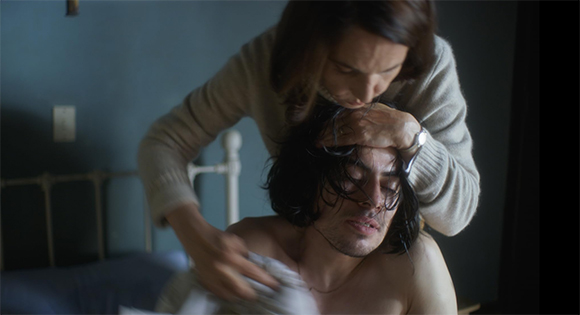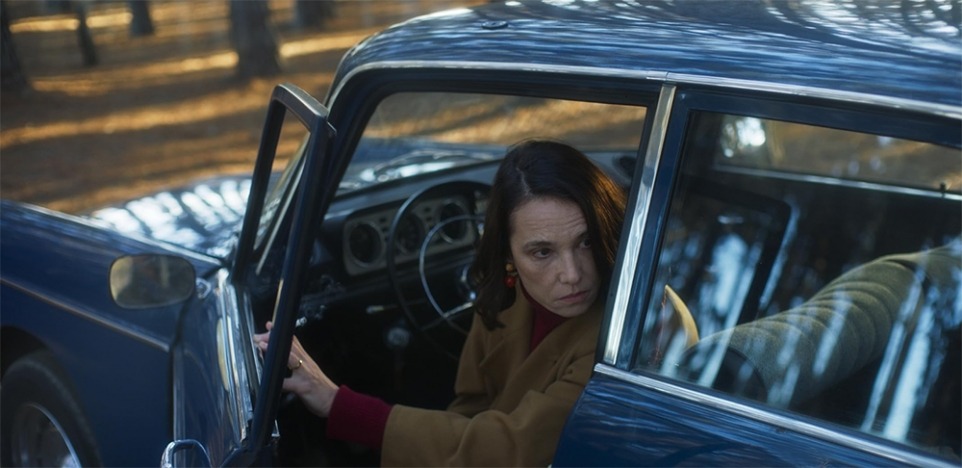Carmen (Aline Kuppenheim) is an upper middle-class Chilian wife and mother. She is busy renovating her summer house and hosting various family members and her children. At the same time, she is active in her Catholic church performing acts of charity. The priest (Hugo Medina), who is impressed by her good deeds, asks her to take care of a wounded young man (Nicolas Sepulveda) he is sheltering. Soon she is visiting him regularly, attending to a bad wound. At first, she doesn’t ask him about what happened to him and why.

The year is 1976 and the early days of Augusto Pinochet’s dictatorship. Chile is turning into a police state. Carmen senses the growing dread around her, yet she won’t stop her care for the stranger. As she gets more involved trying to arrange moving him to a safer place with his comrades, she also becomes more concerned about her own safety and the safety of her family.
Director Manuela Martelli does a convincing job depicting the moral struggle of a bourgeois woman who increasingly feels distant from her peers. The film is both a political and a psychological thriller.
Also Recommended:
Missing, directed by Costa Gavras, covers life and death politics during the military reign of terror in Chile in the 1970s.
Post Mortem, directed by Pablo Larrain, is set in 1973 in Chile when the democratic government of Salvador Allende was overthrown by military forces who wiped out any opposition through torture and random killings.
